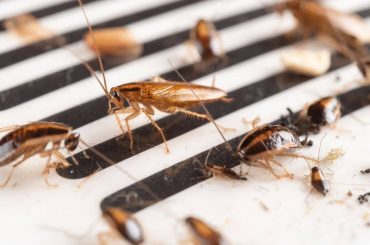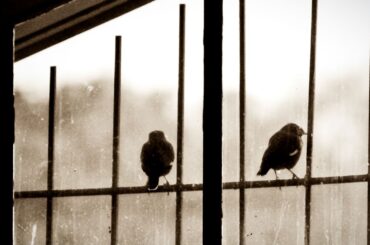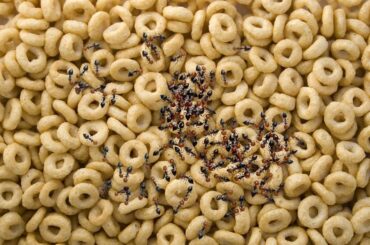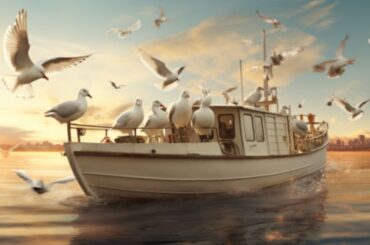Yes, some Tadpoles eat mosquito larvae. Tadpoles are herbivores and act as primary consumers prior to they reach their adulthood.
Usually, they consume the plants and algae whilst swimming around the water. In North America spadefoot toads , green tree frogs and giant tree frogs are considered as mosquito larvae eaters. In the European region , green toad, sandpaper frog, Indian bullfrog and the coronated treefrog consume the mosquito larvae. They would consume plants as their first priority but will be consuming a few species of them consuming mosquito larvae too.

What eats mosquito larvae?
Mosquitoes
Mosquitoes themselves can sometimes prey on the mosquito larvae . However, the influence of them would be somewhat low when they act as predators in larger areas.
Birds
So many bird species consume mosquitoes. Out of these birds such as purple martins, swallow, waterfowl ( geese terns, ducks ) could be active here. Besides, migratory songbirds would also act as predators for mosquito larvae. Keep in mind that almost all of the bird’s predators eat the adult and mosquitoes in the aquatic stage.
Frogs and Tadpoles
Mosquitoes are not a major component of the diets of the frogs and tadpoles. Tadpoles eat mosquito larvae occasionally. Instead, they depend on small plant materials. As aforesaid the most common predators of mosquito larvae are spadefoot toad, green tree frog, giant tree frog etc.
Turtles
Out of all the turtles the red eared slider turtle is what mainly depends on the mosquito larvae. Apart from the above, insects such as dragonflies, dams fly also prey on the mosquito larvae.
Dragonflies
These go by the common name called mosquito hawks. They consume mosquitoes , but not to the level where they will make a big impact on the mosquito population on a larger scale. However, when they are in their aquatic stage, they feed on food which contains a lot of mosquito larvae.
Damselflies
These also prey on mosquito larvae when they are in their aquatic stage since they will be consuming food which contain mosquito larvae.
Predacious mosquitoes
These mosquitos’ prey on the rest of other mosquitoes.
Notable mention of this type of mosquitoes are the mosquitoes which belong to genus Taxorhychites. These are quite special as they prey on other mosquitoes’ larvae and the adults of these mosquitoes are not known as disease transmitting mosquitoes. Besides, aquatic beetle adults and larval species will eat mosquito larvae and pupae too.
Spiders
Spider’s prey on mosquitoes when they land on spider webs uninvited. Then the spiders tend to eat them.

What eats mosquito larvae in ponds?
Mosquito fish (Gambusia affinis)
This is a prominent mosquito eating fish rightly as the name explains them. These are one of the foremost mosquito larvae predators. Mosquito fish are fond of eating the mosquito larvae and they could eat about hundred mosquitoes on a daily basis. Mosquito fish can even compete with other fish types for mosquito larvae despite Mosquito fish being small.
Guppies (Poecilia reticulata)
Guppies have a close resemblance to mosquito fish with regards to their appetite for mosquito larvae. However, you could spot Guppies coming up in different colors which are quite exciting to look at. Hence if you wish to have some attractive predators, Guppies would be a great pick to prey on the mosquito larvae.
Guppies are small, faster swimmers. Hence, they can prey on mosquito larvae significantly. Guppies go by the common names called rainbow fish or million fish. Besides, they are widely distributed tropical fish in the world too.
Minnows (Umbra pygmaea)
Minnows are yet another mosquito eating fish type which could be quite productive in controlling the mosquito populations. Their reproduction also happens faster. However, there would be predators such as big fishes for the Minnows (Umbra pygmaea) in lakes or ponds.
What Do Mosquito Larvae Feed On?
Mosquito Larvae depend on bacteria which usually form in stagnant water. Besides, they eat fungi and algae which they come across in ponds which are poorly aerated.
Mosquito larvae consist of four stages of their life and only then they become adults.
They are airborne which will take place within several days after the submerging of the eggs takes place. The life span of the male mosquitoes would be about 10 days whereas the female’s life span would be around 56 days. The first three stages of the mosquitoes would be in water and when they are fully grown and matured only, they can start flying.
Do bats eat mosquitoes?
Bats eat mosquitoes. With that being said, they could easily locate the other insets . Besides , they can get hold of them easily and eat them easily when compared to the mosquitoes.
Do goldfish eat mosquito larvae?
Goldfish eat mosquito larvae.
However, Mosquito fish (Gambusia affinis) is the most effective predator of the mosquitoes as aforesaid.
What fish eat mosquito larvae?
Besides the aforesaid fish who depend on the mosquitoes there are other fish types also which eat the mosquito larvae. For example, fish types such as sailfin molly, least killifish are some of the fish types which eat the mosquito larvae. The most used fish type out of these two to control the mosquitoes are killifish. Apart from the above, there are other fish species which consume the mosquito larvae during any stage of the life cycle too. This is commonly spotted when they are in the juvenile growth phase.
What bugs eat mosquitoes?
Dragonflies, crane flies and damselflies are the main bugs which eat the mosquitoes. Out of these dragonflies are the biggest predators of the mosquitoes. Crane flies may consume mosquito larvae occasionally. However, these do not live long enough to feed on the mosquitoes for a longer period.

Can I kill mosquito larvae without harming tadpoles?
You can kill mosquitoes without harming tadpoles.
You could commonly spot the mosquito larvae in standing water as that would be where the female mosquitoes make it their habitat to lay the eggs. They could lay plenty of eggs where there will be about 1000 mosquitoes.
As you may understand it is critical that you kill the mosquito larvae at the very moment you spot them as they could make many baby mosquitoes. To overcome this issue, you may use several methods and products also which could kill the mosquito larvae. I recommend doing the following for this purpose.
Use BTI Products
Using products which comprise of BTI would be quite effective in eradicating the mosquito larvae in a much more efficient manner rapidly. In fact, this is a bacteria which forms naturally in the soil and it does not harm humans.
The BTI spores produce the toxins which mainly target the mosquito larvae and there are five strains of BTI which would be quite productive in overcoming the mosquito larvae. You could find different BTI products which are approved for various purposes such as agricultural use, commercial use and for residential use as well.
Add Apple Cider Vinegar to the Standing Water
You may add apple cider vinegar to standing water to kill the mosquitoes too.
Add a Drop of Oil or Dish Soap
You may add a dish soap drop to their oil or even for their water , if you are in a hurry to get rid of them faster. Just one drop of the dish soap in a large water bowl will perish the mosquitoes in a short period like in hours. That is simply because mosquitoes will drown in water when you add soap or oil on to it.
Consider Keeping Fish for Permanent Water Fixtures
You may go ahead with placing the aforesaid fish types as they will eat the mosquito larvae. That will be quite effective in avoiding the larvae infesting the water. Fish types such as Koi, goldfish guppies could be handy here.
What can I put in water to kill mosquito larvae?
You may add an neam oil drop or dish soap to water if you are looking to get rid of the mosquitoes’ larvae faster. You could kill the mosquito larvae within hours’ time as they will drown in the water when you add soap or oil.
Are mosquito larvae bad for ponds?
Mosquito larvae are bad for ponds as they could badly impact the water quality and their clarity if you do not control it well in advance. Further it will give you itchy bites as well. Besides, when the eggs become larvae , they will dispose of a lot of waste matter and they will get piled up in the ponds as the time passes.
How do I stop mosquitoes from breeding in my pond?
Try to move the water as much as you can. Mosquito eggs do not wish to stay in moving water. Instead, they will look for stagnant ponds as they would be perfect breeding places for them.
If you may wish you could consider adding an electric aeration pump or even a fountain to provide motion for the water.
That will stop mosquitos’ eggs getting established, and besides, it will enhance the aeration too. Consequently, the soil mix would be healthier for the ecosystem including for the fish and for the ornamental vegetation. Curb the algae is another way of stopping mosquitoes breeding in your pond. Once the mosquito larvae hatch, they want to have a food supply to further enhance the growth of them.
Usually, it is quite common to spot thick layers of algae in ponds and they would be so attractive towards the mosquitoes.
When you take their food supply off from the ponds, it would help to keep the mosquitoes at bay. One more added advantage of doing this step is having a much cleaner and an aesthetically beautiful looking pond too. You may use a pond algaecide to remove the organic matter. You may consider adding a few critters to stop mosquitoes breeding in your ponds.
Consider adding Killifishes, topminnows, tadpoles, and other aquatic animals as they are fond of eating larvae. Hence, they will be effective in minimizing the mosquito population
Besides, you may treat your water whilst using a wildlife friendly insecticide to stop mosquitoes in breeding them in the ponds.
Refrain in utilizing chemical insecticides as they could be harmful for the rest of the ecosystem. Hence you need to apply a bacterial insecticide instead of a chemical insecticide as they will only kill the mosquito larvae and not the fish or other animals.
You may purchase products which contain BTI and they will remain productive for about 30 days. Moreover you could trim surrounding vegetation for this purpose too. Mosquito larvae prefer to occupy the plant life such as the lush vegetation in the ponds. Hence ensure that you trim them and keep them tidy so that it will reduce the mosquitoes laying eggs in the pond. Hence, always keep in mind to trim the overgrown vegetation and get rid of the unnecessary plants in the pond.
As aforesaid, besides fish , there are other predators such as bats, dragonflies who prey on the mosquitoes.
Hence if you increase the population of these predators, they will ensure that the mosquito population in your pond is less. They will move around your pond and try to eat them. Despite what they always find in your ponds, chances are that they may also occupy the other areas of your home too. Hence, observe the surroundings of your home properly and get rid of any other water pools. Consider adding a natural standard barrier to keep away the mosquitoes.

Do ducks eat mosquito larvae?
Muscovy ducks prefer to eat mosquitoes.
Ducks who are in winged adulthood and in larvae form tend to eat mosquito larvae. Ducks can easily consume the mosquito larvae as they could easily reach the mosquito eggs since the laying into mosquito larvae takes place in the water.
Do chickens eat mosquito larvae?
Chicken eats mosquito larvae if they come across any . They consider the mosquito larvae as a protein source
Conclusion
Hope this article was helpful for you to learn on how to control the menace of mosquitoes and trust now you are well aware of the measures you could take to get rid of them too.
Read Next : Can Dogs Eat Ants? | 7 Amazing Facts For You |





